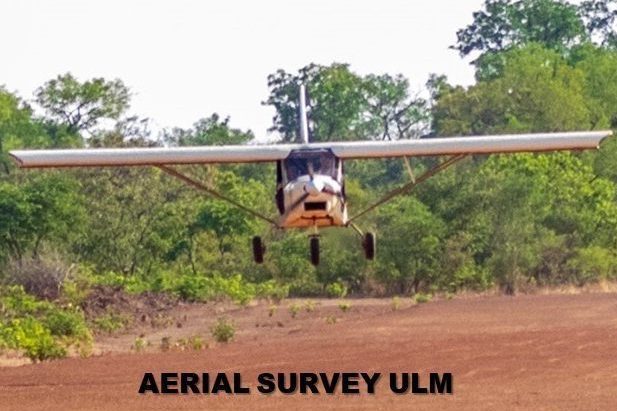
FSOA’s Plan Of Intervention: A Springboard For W National Park’s Management
The FSOA based its intervention on an endowment fund whose interests ensure predictable, regular, and sustainable funding, to secure effective and sustainable management of the Biosphere Reserves of the W-Arly-Pendjari transboundary complex, UNESCO World Heritage Site.
Capitalized today with €40 million, the FSOA has an average grant capacity of €1.5 to €2 million per year. Its priority area of intervention is to cover the recurring costs of National Parks management and their buffer zones.
For the success of the challenge to rehabilitate and develop the W-Benin Transboundary Biosphere Reserve (TBRW-Benin) approximately 8,000 km2, the FSOA has provided a grant of more than €3 million, a substantial co-financing (85%) of the Priority Intervention Plan (PIP), in addition to the Beninese government support.
The main objectives of the TBRW-Benin PIP were focused on: improving the law enforcement system, setting up a special Rangers squad, engaging with local communities, and restructuring the administrative and financial system.
Implemented by the African Parks Network (APN) and the National office of Wildlife Reserves management (CENAGREF) from 1st October 2019 to 30th 2020, the PIP achieved all its objectives, and beyond: A real rehabilitation of the TBRW-Benin, renewed dialogue with the local peoples, strengthened and modernized monitoring system of the Protected Area.
In less than a year, the PIP has succeeded in improving significantly national skills with a much more rigorous approach to law enforcement, a special squad of 68 Rangers, having benefited from excellent Commando training, permanent foot patrols in the field, reinforced means of communication and regular air assistance and two (2) ULM planes.
Despite the contribution of technological advances, particularly in terms of permanent communication, the high-intensity anti-poaching fight involves putting Man back at the core of the surveillance system. To enable the rangers accomplishing their missions in difficult situations, training remains one of the foundations of their operational readiness.
Through the PIP, the Alfakoara Operational Base, the Operations Control Room (Communication and Command), a Ranger training camp, all surveillance outposts, an airfield have been rehabilitated and/or built, and are fully functional. 140 km of runways have been made accessible in all seasons and 11 shallows have been upgraded for crossing.
At the same time, the PIP has succeeded in setting up melting pots of exchange and support with the communities so that they adhere to the “new” vision of a well-managed and conserved National Park for their benefit. In addition, it has enabled a detailed knowledge of the local communities with which a new and more harmonious collaboration has been initiated: Permanent and fluid communication, dissemination of information, system for managing complaints, and active participation of the local residents, through the animation of consultation frameworks bringing together all the stakeholders, in the five communes around the W-Benin Park.
To achieve these performances, in record time, in addition to the substantial financial support from FSOA and the Government of Benin, the PIP has benefited from the field knowledge, expertise and know-how of the CENAGREF staff at the Park Authority, who have been familiar with conservation tasks for many years. This exemplary collaboration between APN, the national office for the management of the Protected Areas (CENAGREF), and the Village Associations (AVIGREF) augurs the right premises for the continuation and for the success of the delegated management of the National Park W-Benin to APN.
Beyond the physical achievements, the PIP has prepared the delegation of management of TBRW-Benin to APN. It allowed to establish an administrative and financial structure, as well as the adequate accounting and reporting mechanism necessary for all future financing, to purchase the required equipment, to recruit and/or train ad hoc staff, and to develop a more inclusive and participatory intervention strategy than in the case of Pendjari. It also fostered more balanced relations between the APN and its supervisory body, CENAGREF, as well as with associations representing local populations (AVIGREF).
Indeed, three years after the Pendjari, the contract for the delegation of management, financing and development of the TBRW-Benin was signed on June 25, 2020, to take effect on October 1, 2020, over a renewable ten-years period. At the end of the PIP, APN has full responsibility for the management of TBRW-Benin.
Indeed, three years after Pendjari, the TBRW-Benin management, financing and development delegation contract was signed on 25 June 2020, to take effect from 1st October 2020, over a renewable period of 10 years. Thus, at the end of the PIP, APN has total responsibility for the management of the TBRW-Benin.
All of this progress achieved through the PIP has been included into the TBRW-Benin Management, Development and Financing Delegation Contract, which is expected to inspire an upcoming review of the contract signed for the Pendjari BTR in 2017.
In the light of the dynamic collaboration, begun in the Biosphere Reserve of Pendjari, and the glowing results for the conservation of biodiversity in Benin, FSOA intends to continue its support to APN and the Government of Benin, for the sustainability of the achievements of the Priority Intervention Plan in the W-Benin.

